Ontario: PCs Lead by 9; Ontarians Split on Housing Solutions
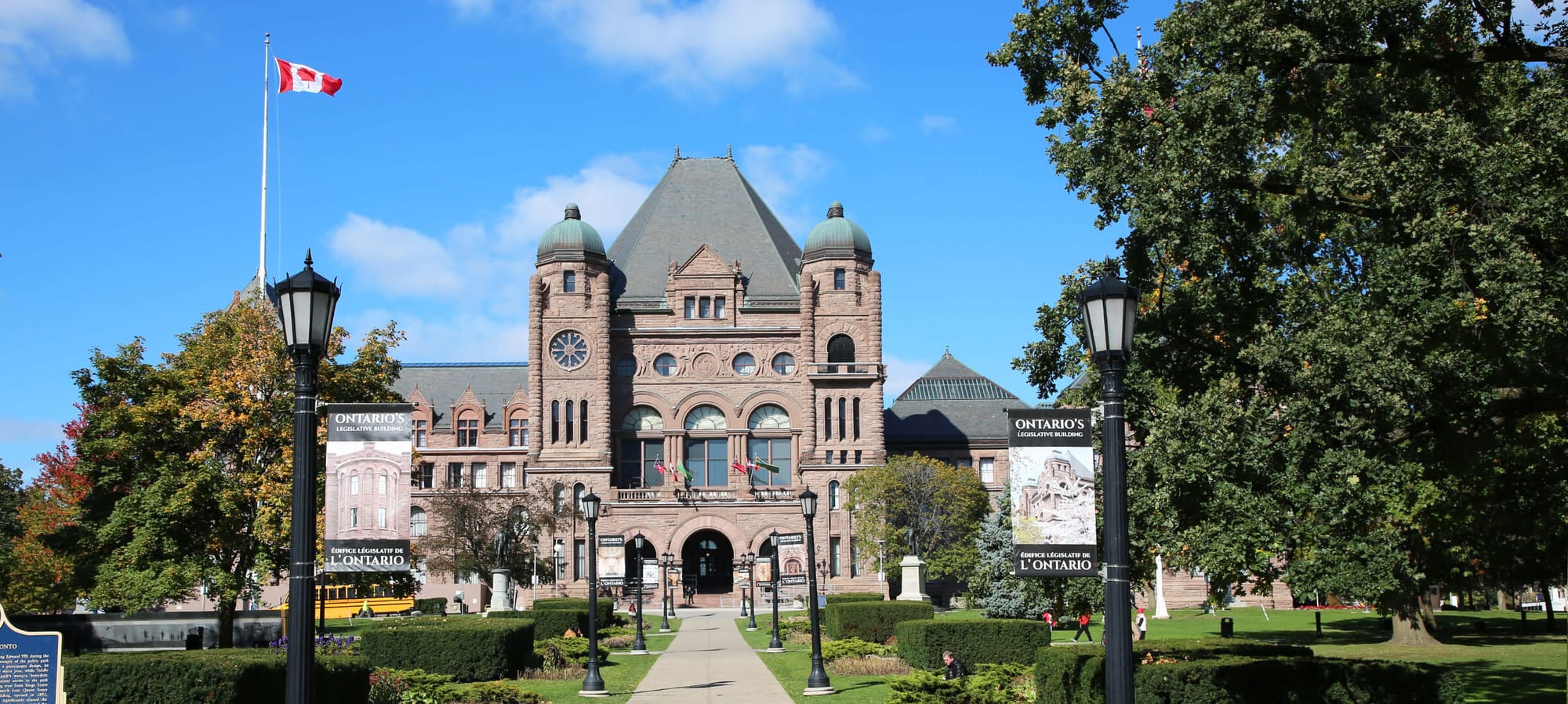
August 29 (Toronto, ON) – A new Liaison Strategies survey of 800 Ontarians shows the province is deeply divided on housing, with sharp contrasts over what drives costs and what governments should do. The poll also finds the Ontario PCs leading the Ontario Liberals by nine points if an election were held today.
Conducted from August 1–14, 2025, using live operators, the survey polled 800 Ontarians. The margin of error is ±3.4 percentage points, 19 times out of 20.
Liaison Strategies is one of the most accurate polling firms in Canada. It ranked #1 in accuracy in the 2025 Ontario election and #2 nationally in the 2025 federal election. Liaison is a member of the Canadian Research Insights Council (CRIC).
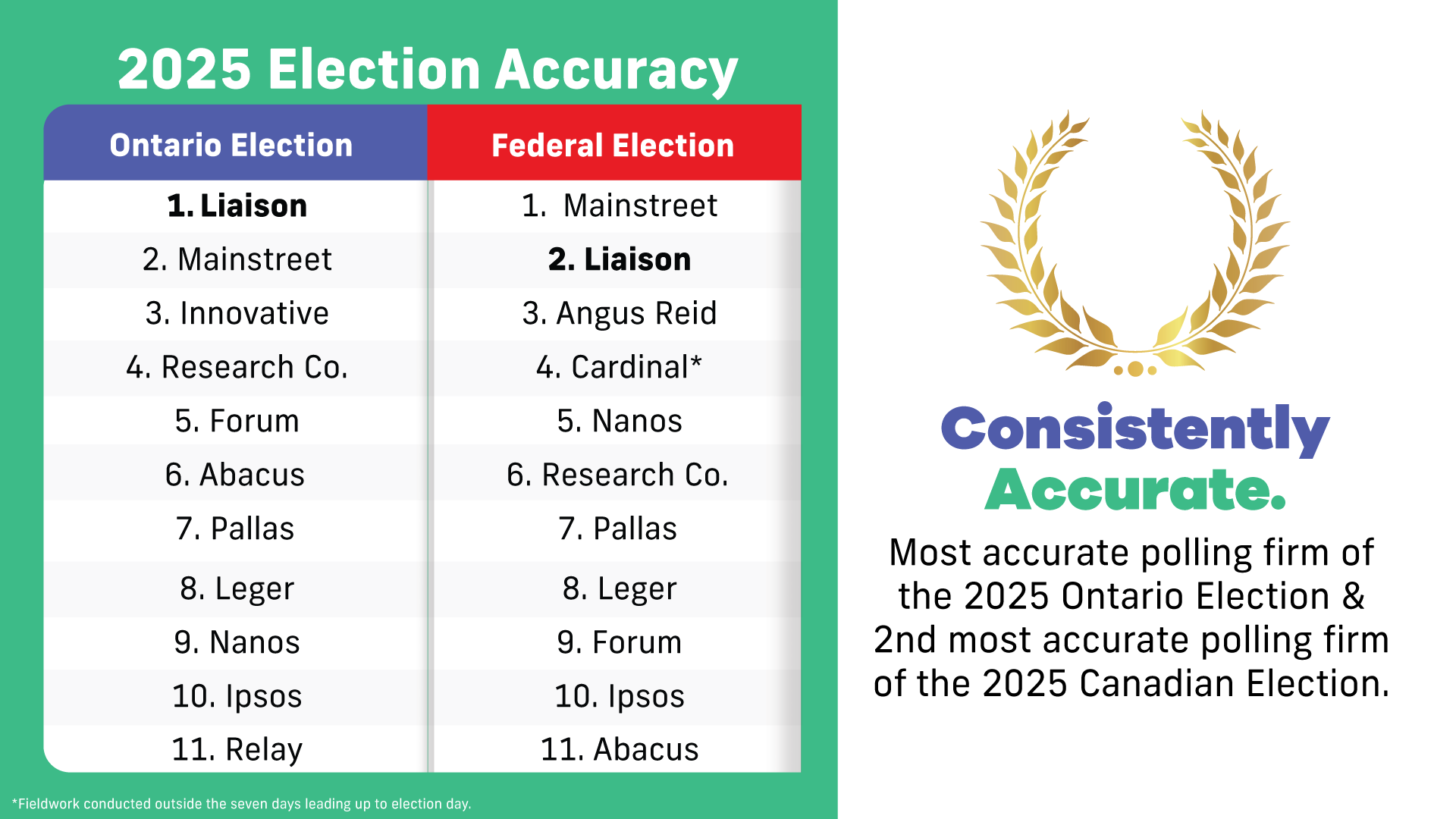
David Valentin, Principal at Liaison Strategies, said:
“The PC advantage shows up across most regions, while the Liberals’ strength remains concentrated in the 416. Among decided voters, the PCs lead by nine points, with particular strength in the East and across the 905.
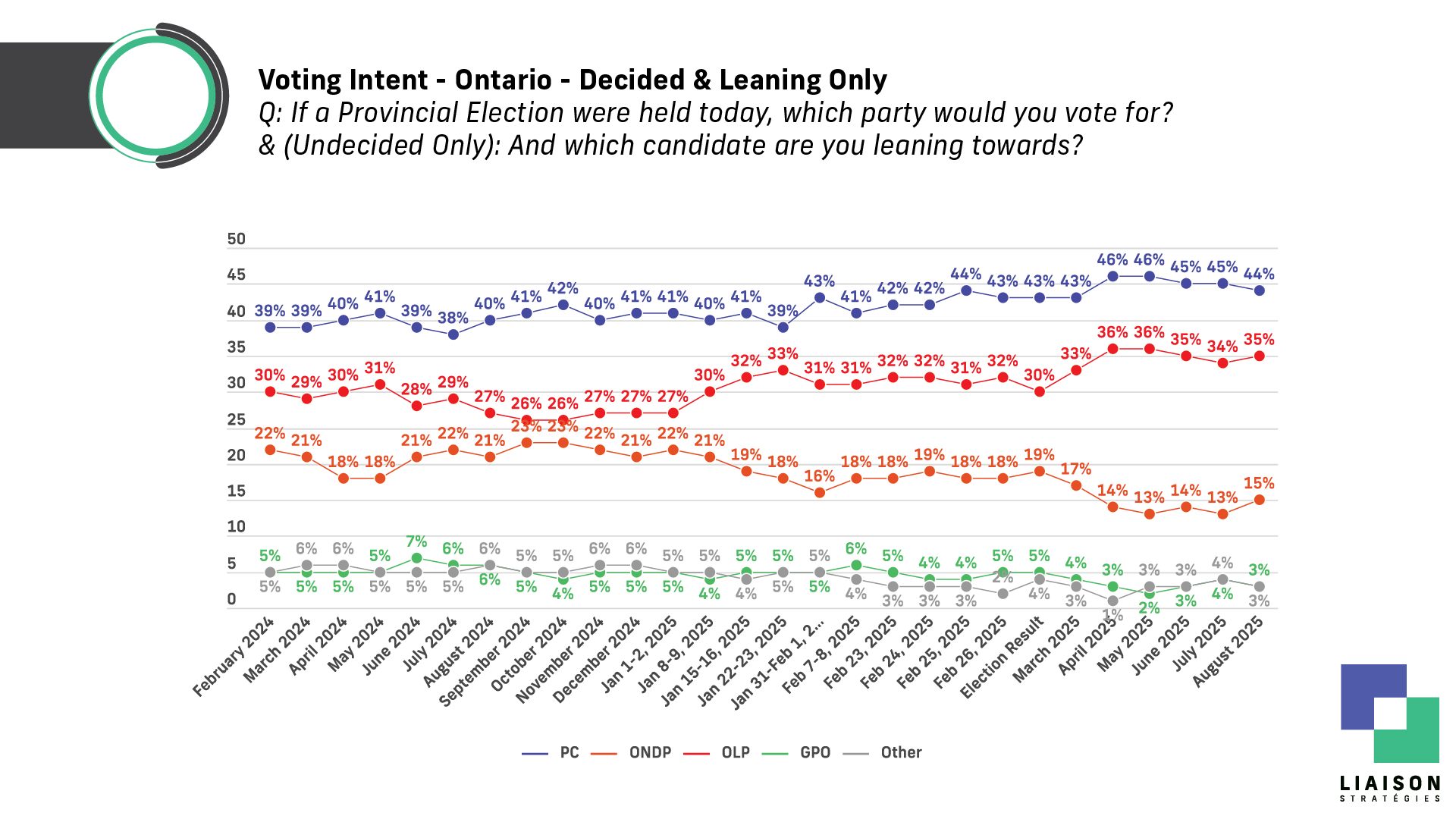
The Ontario NDP are up slightly in this survey at 15%, but they continue to lag behind their share of the vote in the most recent election. Women lean toward the Liberals, while men break heavily to the PCs. The NDP’s strongest region is the North and their best-performing age group is the youngest, but even in those groups they trail the PCs.”
This month’s Liaison poll also asked a series of questions on housing.
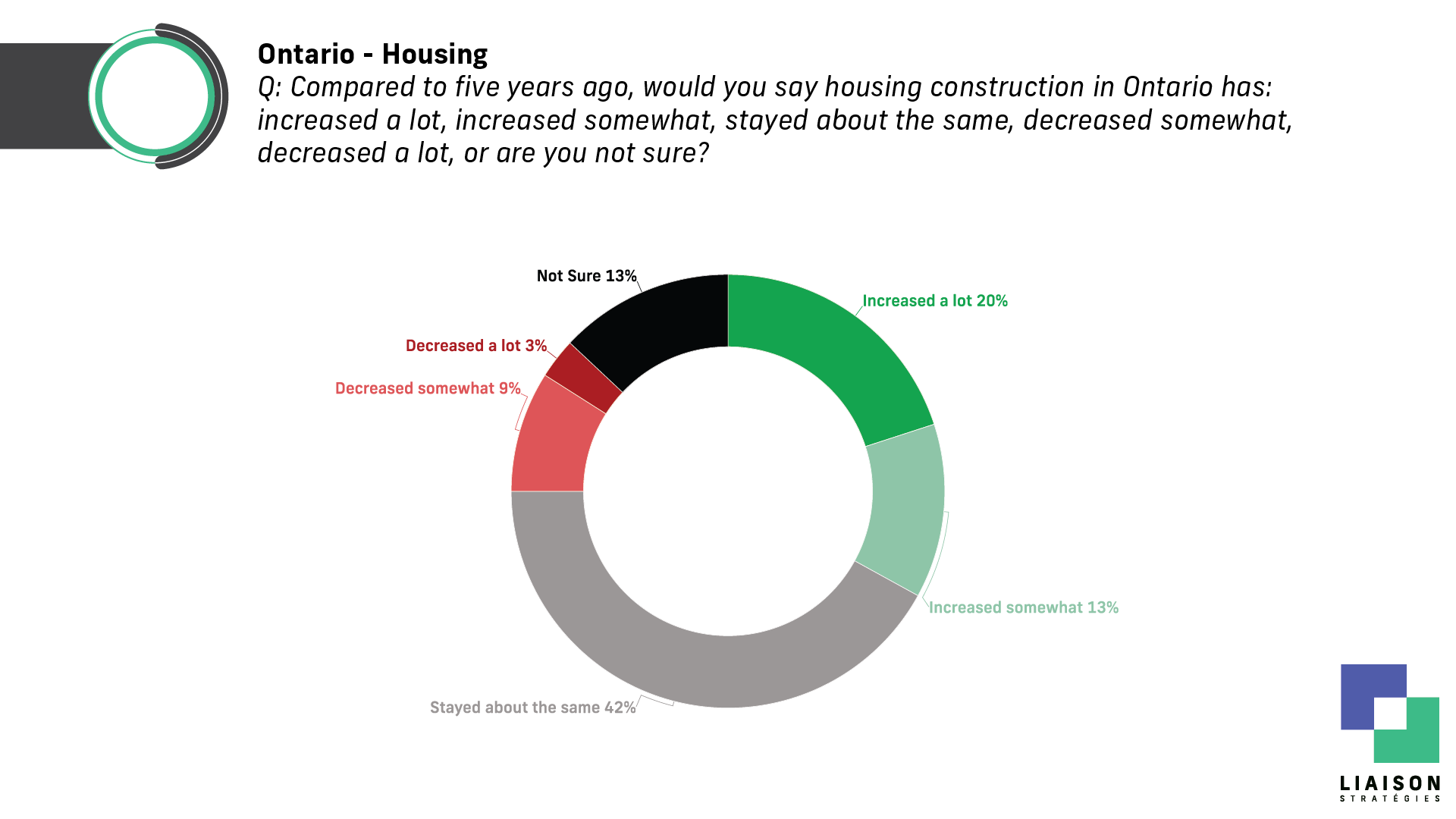
Forty-two percent of Ontarians said they believe housing construction has remained about the same compared to five years ago. Another 33% said it has increased somewhat, while just 12% correctly identified that construction has in fact decreased. Housing starts in Ontario are down, especially in Toronto, compared to five years ago. Only 12% of Torontonians say construction has decreased - the same as the Ontario average.
43% of PC voters say more housing is being built today than 5 years ago - the number is lower for NDP voters (24%) and Liberal voters (28%).
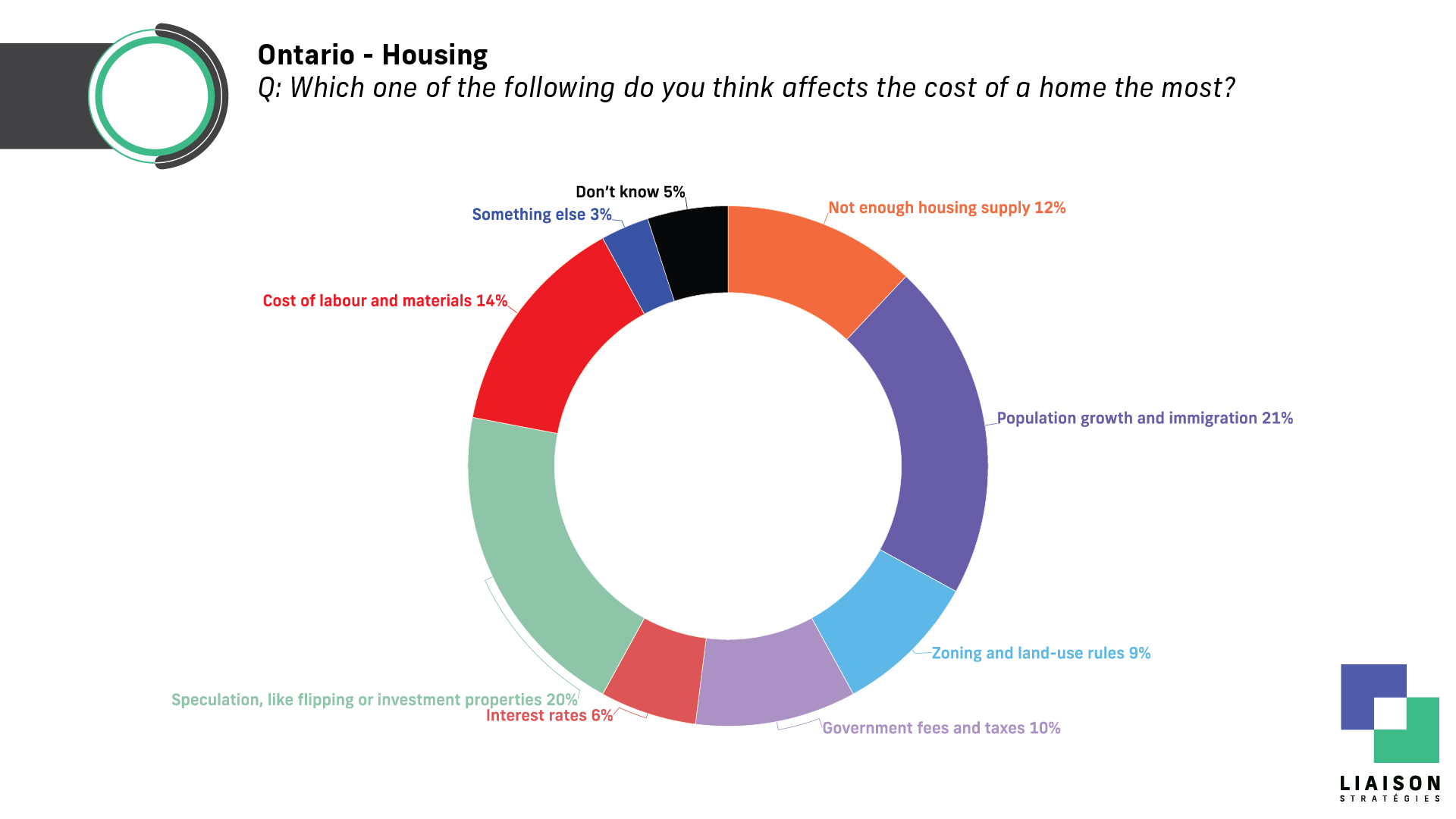
Ontarians are also divided on what most affects the cost of a home. Twenty-one percent point to population growth and immigration, 20% to speculation, and 14% to the cost of labour and materials. Only 9% believe zoning and land-use rules are the main factor, while 10% say it is government fees and taxes.
Much of the recent public debate has focused on development fees and zoning as key drivers of housing prices. While our question was not specific to new builds, the results highlight a clear gap between what policymakers emphasize and what the public believes is driving costs.”
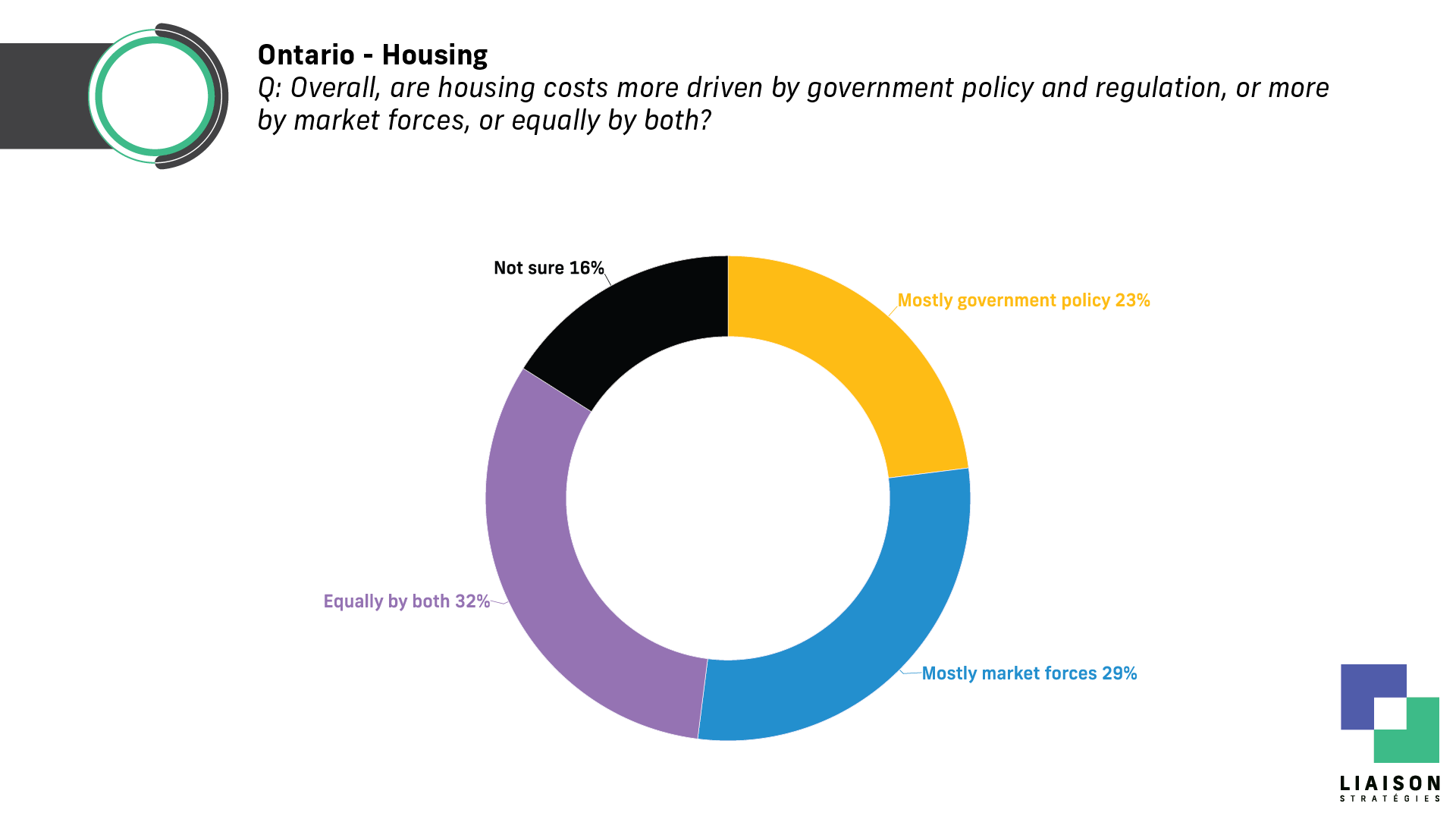
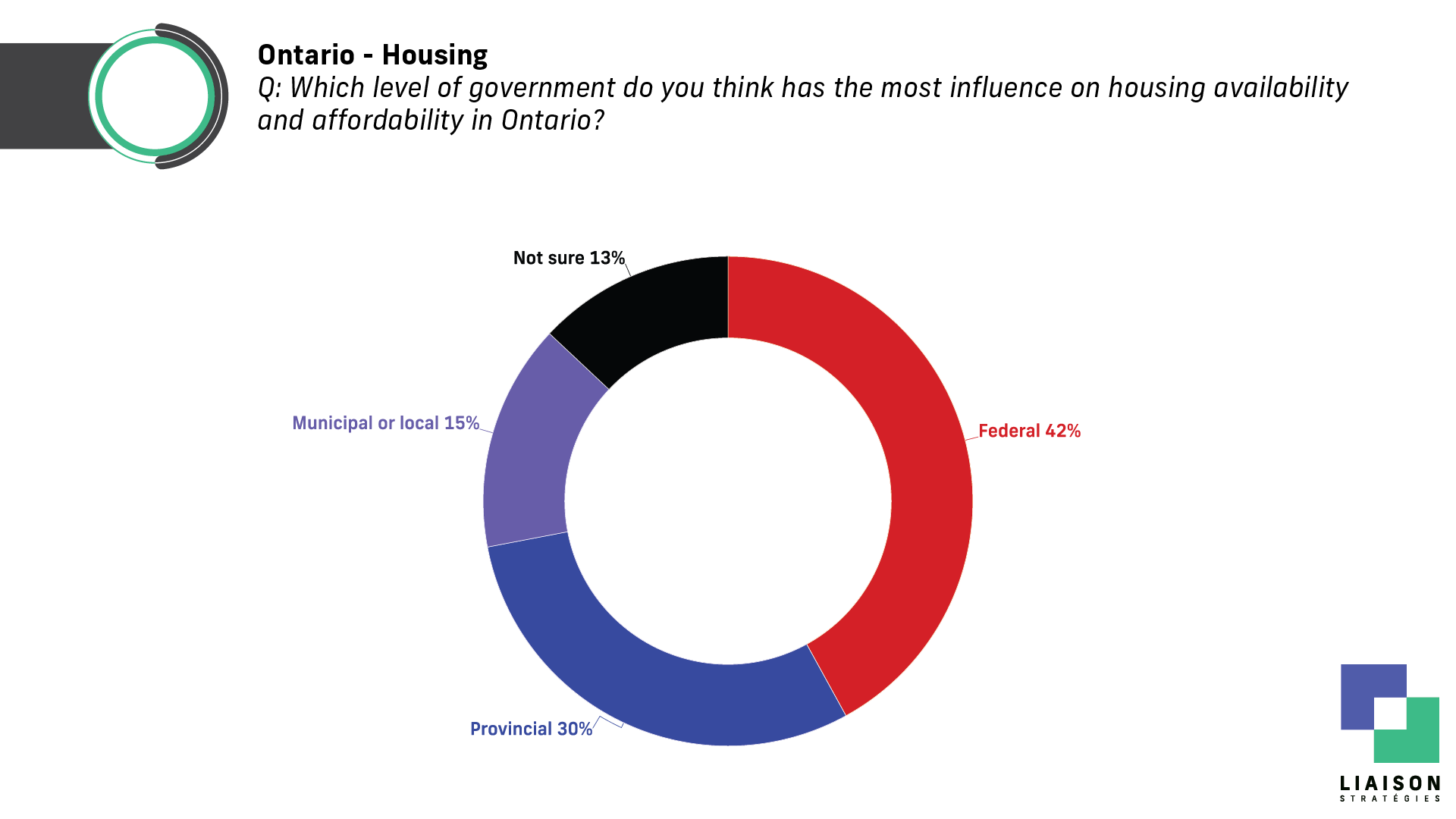
Furthermore, 42% of Ontarians say the federal government has the most influence on housing availability and affordability. While Ottawa certainly plays a role, experts would argue that municipal governments have just as much, if not more, influence over how and where housing gets built. Yet only 15% of Ontarians point to their municipal or local government as having the most influence. Only in Toronto is the number significantly higher (27%).
When asked whether housing costs are shaped more by government or by market forces, Ontarians are divided. Twenty-three percent say government policy has the most impact, 29% point to market forces, and 32% believe both play an equal role.
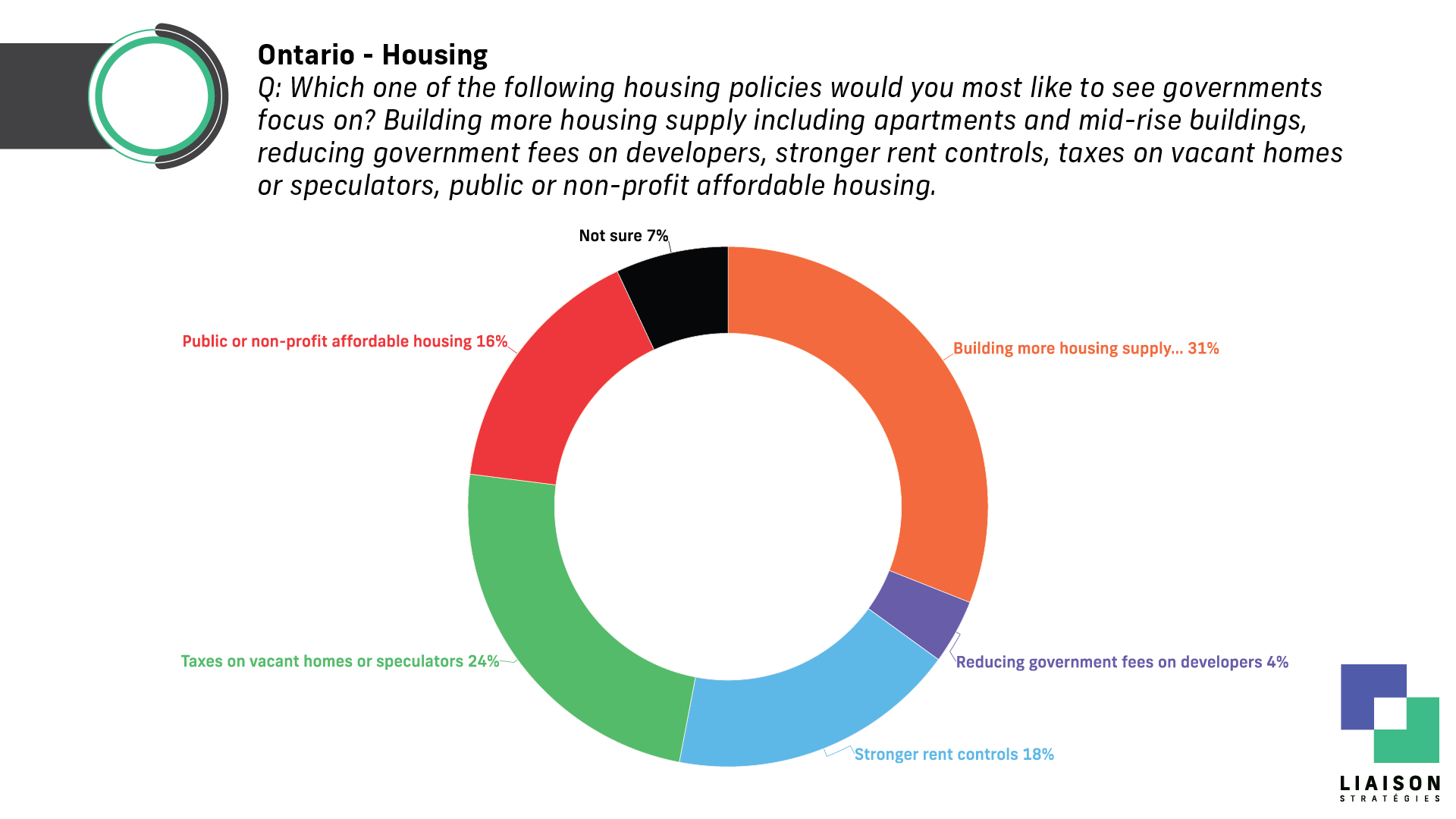
Lastly, we asked Ontarians what solutions they want governments to prioritize. The top choice is building more housing supply, selected by 31%. This is followed by taxes on vacant homes and speculators. Stronger rent control is supported by 18%, while 16% favour more public or non-profit housing. Reducing fees on developers draws little support at just 4%.
Among Decided & Leaning Voters
Ontario PC - 44%
Ontario NDP - 15%
Ontario Liberal - 35%
Ontario Greens - 3%
Other - 3%
-30-
For more information:
About Liaison Strategies
Liaison Strategies is a national public opinion research firm. With 12 years of experience in Canadian polling, David Valentin, principal, has fielded hundreds of projects at the municipal, provincial and federal levels and appeared across Canadian media to discuss insights. Liaison is a member of the Canadian Research Insights Council (CRIC), Canada’s voice of the research, analytics, and insights profession both domestically and globally.